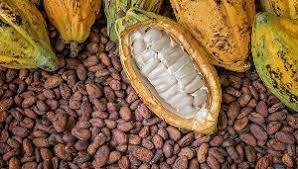Ghana Cocoa Board Shifts Focus to Spot Sales for New Season: A Strategic Move to Boost Cocoa Revenue
In a bold move aimed at enhancing cocoa revenue and stabilizing the market, the Ghana Cocoa Board (COCOBOD) has shifted its focus towards spot sales for the new season. This strategic pivot is expected to have significant implications for the cocoa industry, marking a departure from the traditional forward sales model, which has dominated the sector for years.
Historically, COCOBOD has relied heavily on forward sales to secure prices for cocoa months ahead of harvest. This approach, while effective in providing early funding for farmers and stabilizing market conditions, has also limited the board's ability to respond flexibly to changing global cocoa prices. By focusing on spot sales, COCOBOD can now take advantage of favorable market conditions, allowing for higher returns and better alignment with the global supply-demand dynamics.
The shift to spot sales is driven by several factors, including volatile market trends and increasing competition from other cocoa-producing nations. Global cocoa prices have experienced fluctuations in recent years, partly due to external factors like weather events, shifts in demand, and the economic performance of major consumers such as Europe and the U.S. The new strategy allows Ghana to capture better prices when market conditions are favorable, rather than locking in fixed prices months in advance.
One of the primary advantages of this approach is that it provides greater financial flexibility for both COCOBOD and cocoa farmers. Rather than being bound to predetermined prices, Ghana will now be able to adjust its sales strategy based on real-time market intelligence. This move is expected to provide a more accurate reflection of market realities, ensuring that Ghana's cocoa sector remains competitive in an ever-evolving global marketplace.
Additionally, the new strategy is anticipated to create more direct competition in the global cocoa market, giving Ghana an opportunity to assert its dominance as a key player in cocoa production. COCOBOD’s emphasis on spot sales could also encourage investment in the sector, attract more buyers, and possibly lead to improved infrastructure and services for farmers.
However, the transition is not without challenges. Farmers, who are used to the stability offered by forward contracts, may face some initial uncertainty as they adjust to the new market dynamics. The government will need to ensure that farmers have access to the necessary support systems to navigate this shift.
Overall, COCOBOD’s decision to prioritize spot sales reflects a strategic recalibration designed to maximize Ghana’s cocoa revenue potential, strengthen its position on the global stage, and ensure long-term sustainability for the industry.



No comments yet
Be the first to share your thoughts!